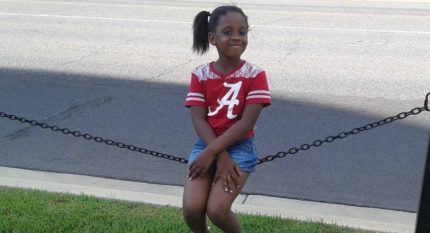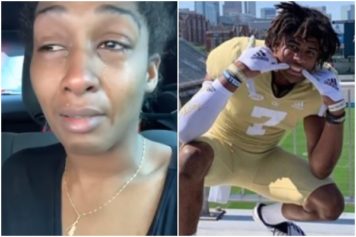
Black people face racial-based trauma but those who seek help have limited options with adequately trained professionals.
“Black people don’t go to therapy.” It’s an oft-quoted belief that, for various reasons, has been hard to shake within the black community — pushed away by some as a sign of weakness. For Monica T. Williams, a clinical psychologist at the University of Connecticut and director of the Laboratory for Culture and Mental Health Disparities, it’s an uphill battle she’s well familiar with.
Penning an article for Psychology Today, she revealed “African Americans share the same mental health issues as the rest of the population, with arguably even greater stressors due to racism, prejudice, and economic disparities. Meanwhile, many wonder why African Americans shy away from psychotherapy as a potential solution to challenges such as depression, anxiety, post-traumatic stress disorder, marriage problems, and parenting issues. As a black psychologist, it is troublesome that so many African Americans are reluctant to make use of psychology’s solutions to emotional hurdles.
“Something I found in my own studies is that even among African Americans who suffered greatly from mental disorders, many held negative attitudes about people who obtain mental health care,” Williams added. “No matter how impaired they were, they didn’t want to be one of ‘those people.’”
Mental illness doesn’t discriminate, however, meaning virtually anyone can become one of “those people.” For Black Americans in particular, the stakes are often much higher, with the Office of Minority Health estimating that “African Americans are 20 percent more likely to report psychological distress than adult whites.” Those living in poverty experience even higher rates, with African Americans “more likely to have feelings of sadness, hopelessness, and worthlessness” than white Americans.
Racism has long played a role in eroding mental health amongst Black Americans, thanks in part to years of anxiety, microaggressions and systematic oppression within our society. A phenomenon University of Utah researcher William A. Smith labeled “racial battle fatigue” nearly two decades ago. For those actively seeking help, however, there remains a gap in funding and training for professionals tasked with treating this unique trauma.
According to Mental Health America, “Less than two percent of American Psychological Association members are Black/African American, some may worry that mental health practitioners are not culturally competent enough to treat their specific issues. This is compounded by the fact that some Black/African American patients have reported experiencing racism and microaggression from therapists.”
As a result, not only are Black Americans more hesitant to seek therapy, those that do may have a harder time finding a professional empathetic to their case. Seeking answers, Carrie Hemmings, an assistant professor at Auburn University, co-authored a study to explore what discoveries had been made in this realm.
During a recent interview with ThinkProgress, Hemmings explained, “With America’s climate in the current day and time and all of the instances of oppression and discrimination and hate crimes … I was curious. Are counselors really addressing this issue?”
Speaking with over 106 counselors, the study found that while 75 reported seeing patients that had experienced race-based trauma, only 20 admitted to having the proper training to actually treat it. According to the study, “The majority of participants (n = 75, 70.8%) reported that they had worked with clients who had experiences with race-based trauma, and 31 (29.2%) indicated they had not. This finding supports research that indicates racism continues to be a profound and damaging problem and is involved in many aspects of daily living among individuals of color in the United States.”
Written with Amanda M. Evans, the pair’s study also concluded that “Racism can affect physical and mental health in the following ways: stress caused by reduced access to employment, housing, and education; increased exposure to risk factors. Physical injury as a result of racially motivated violence; higher rates of raised blood pressure; increased psychological distress, depression, negative self-esteem, intrusive thoughts and decreased quality of life.”
While the profession as a whole has been slower to train clinicians on techniques specifically tailored to racial trauma and anxiety, thanks to numerous studies the conversation has continued, thanks in part to dedicated professionals like Williams. But she cautions that more needs to be done.
“Most clinicians are white, so they don’t experience these things, so they don’t see them, and so they’re not thinking about them. It’s important to always find out how much of a role stress from racism is playing in patients lives and if it’s to the point where it’s traumatic,” Williams said.
During an interview with The New York Times she explained how trauma — like the unjustified deaths of Black Americans — can produce shared anxiety that may linger. “The trauma of events like this is not formally recognized in the DSM [Diagnostic and Statistical Manual of Mental Disorders]. It talks about different types of trauma and stress-related ailments, but it doesn’t say that race trauma can be a factor or a trigger for these problems. Psychiatrists, unless they’ve had some training or personal experience with this, are not going to know to look for it and aren’t going to understand it when they see it,” she said.
Since then, Williams has gone on to open a center that caters exclusively to treating issues related to black mental health in Louisville, Kentucky.
Hemmings remains hopeful the industry will continue to adapt: “Counseling is a field where we are continually learning and developing — we are in the process of making advancements and treating different situations,” she said.
Urging professionals of all races to be open to learning in this area, she also told ThinkProgress “It’s important for white counselors to no not be afraid of race, not be afraid that they’re going to say the wrong thing.”


